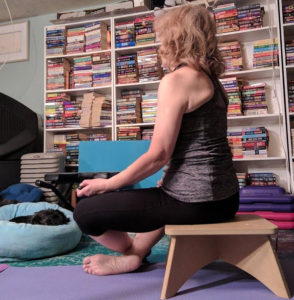It’s all connected. I’ve mentioned many times that when we exercise our brain gets the benefits as well as our body. Exercise promotes improved cognition, better memory and more quality sleep. But something that I hadn’t considered until recently is that there’s a gut-brain connection too.
I no longer have a cast iron stomach
Up until recently I had been blessed with a cast iron stomach. I could eat anything with no repercussions. And then out of the blue the family irritable bowel came calling. Not to disgust you with detailed descriptions, suffice to say that it’s not fun having a cranky gut.
A study correlates gut and brain health
Then I read an article about a study performed by Harvard Medical School researchers that seems to correlate gut and brain health. Many people supplement their diets with probiotic foods, seeking to boost mental health. The study indicates that, just as your gut health influences your brain, your brain activity can have a positive impact on your gut health. Biochemical signals run from your gut to your brain as well as the other way.
“The mechanisms in the gut include immune system activation, alterations in the gut’s structure, and the resultant inflammation, which can impact the brain’s structure and function, ultimately affecting our behavior and emotions.” So, your gut really does affect your feelings and how you react in your normal, everyday life.
Can meditation affect the gut-brain connection?
The study, in particular, looked at the effects of meditation on gut health. It’s been known that meditation leads to physiological changes, such as reduced heart rate and lowered blood pressure. These in turn lead to reduced stress and overall well-being. This can also lead to more happiness and resilience as we age.
It’s known that stress can lead to “gut aggravation.” So, how would meditation alleviate this dysfunction? Would meditation lead to a calmer gut as well as a calmer brain? Would the gut-brain connection hold for this application?
The answer is a resounding “Yes.” After an 8-day meditation practice, the study found that participants exhibited increased levels of a compound known for its anti-inflammatory, analgesic, and vascular relaxation properties. It also found a decrease in a substance linked to atherosclerosis risk.
I’ve found that a daily meditation practice definitely helps my anxiety. Just a couple of minutes in a Guided Meditation helps. I’ll have to try and go deeper and see if my digestive problems can be alleviated!









